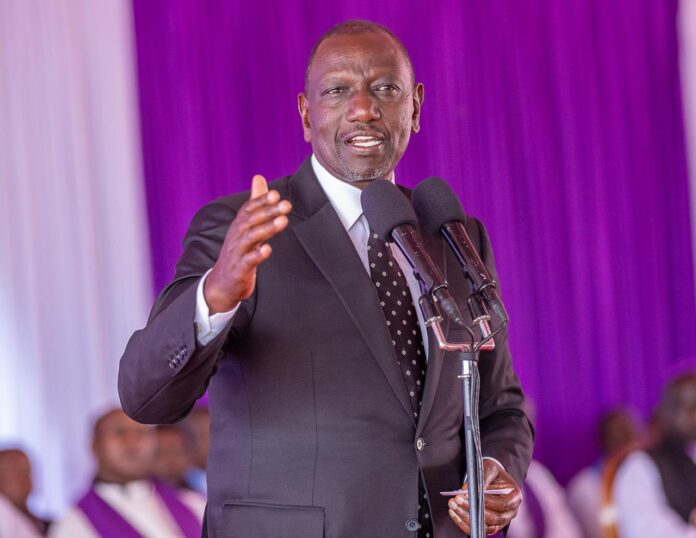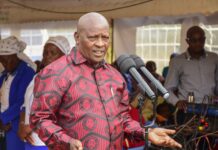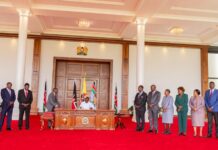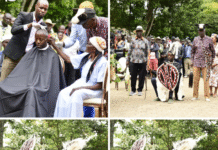President William Ruto has unveiled a new government initiative aimed at empowering single mothers across the country.
Speaking on Thursday, October 23, Ruto said the plan would provide both training and practical support to help them engage in business with the government at various levels.
“Single mothers, we have a place for you. We want single mothers and other women to come forward. We are looking for 600,000 women to train and support by showing you how to do business with the government, either at the national or county level,” he said.
Elsewhere, this comes days after Ruto announced the resumption date for the NYOTA Project verification exercise, a national youth empowerment initiative aimed at supporting young Kenyans across the country.
Speaking during Mashujaa Day celebrations on Monday, October 20, he said the exercise would begin on Friday, October 24, in all constituencies.
“On Friday, October 24, in every constituency, we will verify youth who have businesses so that we can fund them to boost their enterprises, enabling them to contribute to Kenya’s growth and help eradicate poverty,” he said.
Ruto further revealed that the government will begin releasing funds soon after the verification exercise concludes.
“In the next two weeks, we will start disbursing the money to the youth who will have been identified on November 4, so that we can run the programme and see how many young people can benefit from itt,” he added.
NYOTA focuses on expanding income-generating opportunities, fostering savings, and nurturing entrepreneurship among young Kenyans.
Through the programme, the government aims to empower youth as innovators and contributors to national development and economic resilience.
The project targets 820,000 vulnerable youth across all 47 counties, offering them a chance to gain employability skills, business support, and access to financial services.
To qualify, applicants must meet specific criteria: they should be between 18 and 29 years old (up to 35 for Persons with Disabilities), have a maximum education level of Form Four or below, and currently be unemployed, underemployed, or engaged in low-income work.
Importantly, participation in the NYOTA Project is entirely free; applicants are not required to pay any fees or service charges to enroll.
NYOTA is implemented through a multi-agency approach featuring four key interventions, each focusing on different aspects of youth development and empowerment.
The first intervention, Improving Youth Employability, seeks to equip young people with socio-emotional and work-readiness skills to prepare them for the labour market.
A total of 90,000 youth will undergo training, with many gaining apprenticeships through on-the-job experience.
Additionally, 20,000 participants will have their skills certified under the Recognition of Prior Learning (RPL) programme.
This intervention is jointly implemented by the State Department for Youth Affairs and the Creative Economy (SDYACE), the National Employment Authority (NEA), the National Industrial Training Authority (NITA), and the State Department for Labour and Skills Development (SDL).
The second component, Expanding Employment Opportunities, focuses on supporting 110,000 young people to start or grow their businesses.
It provides business training, mentorship, start-up capital, and financial linkages to boost entrepreneurship.
This arm of the programme is led by the Micro and Small Enterprises Authority (MSEA).
The third intervention, Supporting Youth Savings, promotes a savings culture among participants.
Approximately 190,000 beneficiaries from the employability and business support interventions are enrolled in the National Social Security Fund’s (NSSF) ‘Haba Haba’ Savings Scheme.
The scheme features automatic deductions, matched savings incentives, maternity benefits for young mothers, and financial literacy training.
The NSSF oversees the implementation of this initiative, helping young Kenyans build financial discipline and long-term security.
The fourth intervention, Strengthening Youth Employment Systems, aims to enhance coordination and efficiency across youth-related programmes.
It includes the digital skilling of 600,000 young people to improve their access to government procurement and funding opportunities, as well as capacity building for national and county government actors to promote multi-sectoral collaboration.



















